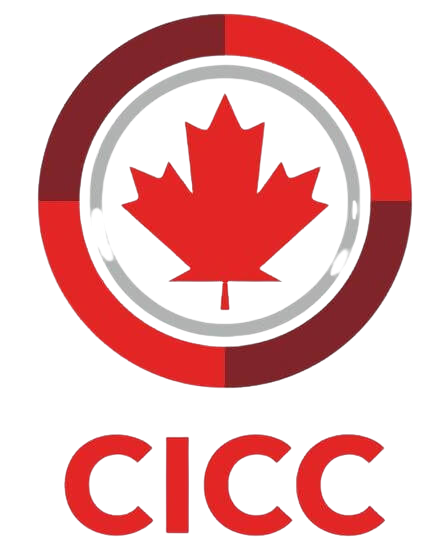Undoubtedly, your marriage is one of your life’s most beautiful and joyful times. And while getting married is exciting, it may also raise worries and doubts about married couple immigration to Canada.
You may wonder whether you need to notify the IRCC if you are getting married while submitting an Express Entry application. To clear this confusion, please be aware that you must inform the IRCC officials of any significant anticipated changes in your life. This is because inadequate action could have disastrous repercussions on you.
What is an Express Entry System?
The Express Entry System is one of the most common routes to permanent residency if you want to establish a new life in Canada. Every year, the nation invites hundreds of thousands of qualified candidates using the Express Entry system. For this, the Canada visa processing time can take roughly eight weeks after biometrics is submitted to the IRCC with your visa application.
The Canadian government processes applications for PR visas from talented professionals who desire to immigrate to Canada with their families permanently via the Express Entry to Canada online system. This may be the ideal way to begin the immigration procedure if you are a married couple seeking immigration to Canada.
The three economic categories that are accepted by the system are as follows:
- Federal Skilled Worker (FSW)
- Federal Skilled Trades (FST)
- Canadian Experience Class (CEC)
Express Entry to Canada System
Express Entry uses the Comprehensive Ranking System (CRS), a points-based ranking system that rates you based on several criteria that, in the eyes of the IRCC, show your potential for success in Canada. These components include education, linguistic proficiency, and work experience in Canada.
The CRS applies whether you are single, in a relationship, or getting married in Canada on a work visa. You are considered to be coupled if you are legally married or in a common-law partnership with someone for at least a year. Besides, your grade varies a little depending on your status. For example, being married may give you fewer base points than single individuals, but you may also receive points from your partners.
A Principal Applicant (PA) is involved in each Express Entry application. So, if you are getting married in Canada on a work visa, your PA is the foundation for the application and immigration. The CRS assesses the PA, and a score is given to them. The PA may also submit the application on behalf of their partner and any dependent children. However, only one partner may submit a joint application as the PA.
As long as both you and your partner are eligible for at least one Express Entry program, you can decide who will serve as the PA. Since it is highly improbable that both of you have the same CRS score, this criterion is crucial. Therefore, the one with a higher CRS score would make a better PA because they are almost sure to have one.
Another crucial concept is understanding that the scoring methodology for single PAs and paired PAs differs considerably. This is because the CRS subtracts 40 points from the PA’s possible points for various reasons to account for the partner.
Express Entry Canada Requirements:
Specifics of CRS
A CRS score consists of four factors. Depending on whether or not you are coupled, just the first two are different. So, if you are getting married in Canada on a work visa, you can only claim half as many points as individuals. You can, however, earn points through your partner. However, a single person cannot gain points from spouse or relationship criteria.
-
Core/Human Capital Factors
This includes age, language, and education. A couple can get up to 460 points, but a single person can earn up to 500 points.
-
Spouse/Partner Factors
This category can receive up to 40 points in total. It evaluates you and your partner’s language, educational, and professional experience.
-
Skill Transferability
With post-secondary training and employment experience in Canada, 100 points is the highest possible score for this category.
-
Extra Points
There are 600 possible points in this category. In addition, extra variables such as receiving post-secondary education in Canada or a provincial nomination through an improved Provincial Nominee Program (PNP) give points too.
You can earn a maximum CRS score of 1200 points, alone or in a couple. You and your partner can also determine who will be the primary candidate to optimize the possible score, provided that each is eligible for each program.
What is an Invitation to Apply?
An invitation to apply is an online request sent by the Canadian government as the last stage in the Canada PR visa application process. The ITA procedure requires supporting documentation for the information you have included in your Express Entry profile.
You have 60 days from the receiving date of an ITA to compile the required paperwork and file a formal application for Canadian permanent residency (this excludes the Canada visa processing time after biometrics).
What happens if you get married after applying?
In such a situation, the IRCC asks you to reveal any modifications of your social status, such as marriage, divorce, or the presence of dependent children. Your spouse/children must be included as dependents on your application, along with other supporting documentation.
Your spouse’s eligibility to enter Canada also affects your eligibility. Whether they travel with you to Canada or not, you must do this step.
What if you get married before completing the PR Application but after receiving the ITA?
You must still inform the IRCC about your relationship status if you get married after receiving an ITA but before requesting a PR visa. This is because your application will be impacted by the changes in the makeup of your family. Furthermore, your CRS ratings can alter if your spouse wants to immigrate to Canada with you. Therefore, look for cutoff scores for the draw when you receive the ITA.
Should you add your spouse to your PR Application after submitting your ITA and PR Visa?
Yes, even after submitting your application for permanent residency, you can still include your new spouse. You’ll receive a document checklist from IRCC to include your spouse in your application. Informing the IRCC of your changed marital status would be beneficial.
Even though your spouse won’t be travelling with you to Canada, should you still notify IRCC?
Whether or not your spouse wants to travel with you to Canada, you must let the IRCC know about your marriage. In addition, you must also inform the IRCC of any modifications to your relationship status (keep room for the Canada visa processing time after biometrics).
If you don’t, your visa could be in jeopardy and, in some situations, be rejected or banned for up to five years.
Conclusion
To conclude, if you are uncertain about your spouse’s visa eligibility or want to learn more about married couple immigration to Canada or Express Entry Canada requirements, read the article thoroughly to get the necessary authentic information.










